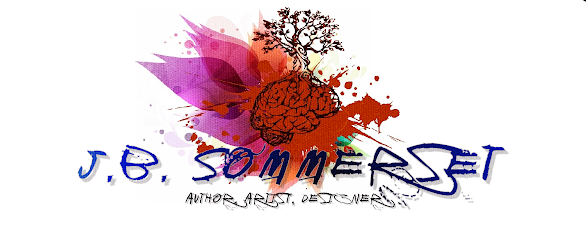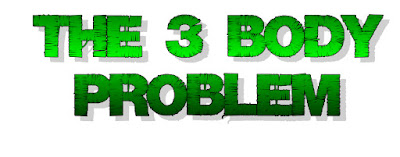What are we saying?
As writers, I hope all of us also read. Reading is the foundation of writing, at least for most authors, and it's important to recognize crap from cream. Sometimes other writers make us feel small with their skill and prowess. Some, not so much, sometimes we are revolted by the works of other writers. Sometimes we have to put a book down because it made us throw up in our mouths a little.
As a writer, I can safely say that nothing turns off my reading boner like poorly thought-out stories. Especially ones where the plot holes are big enough to fly a plane through. Sometimes, it seems the writer didn't try. Some of the telltale signs of lazy writers are lousy character development, hideous syntax, poor descriptions, weak development of themes and continuity, super thick plot armor, or MacGuffins. All of which are reasons to put a book down and forget about it. And god, do I hate me some MacGuffins- the sure sign that a person is a lazy writer.
That being said, there is one mistake I haven't discussed in depth before. And, in fact, there are authors I have quit reading simply because they did this one thing. That's right, this week we have a little discussion about shitty dialogue. When it comes to shitty dialogue, it's all-encompassing- there is way too much to dive into, so for the sake of brevity, I will only tackle of few.
First, let's tackle the mechanics of dialogue. Dialogue should be written with intent, it must carry the situation from somewhere to somewhere. It should be ordered as the story is ordered. It should have correct formatting, correct punctuation, correct use of pauses, and proper conveyance of ideas and that's just to start with. Another thing to keep in mind is it should flow naturally with the story and happen when it contributes to the story. The mechanics of dialogue is simple, it's the pattern of punctuation and syntax we use to set the tempo, mood, continuity, and importance of what is being said. It's how we use commas, quotations, question marks, exclamations, and of course, the misunderstood and overused ellipses. I mean come on... get your shit together people. As an example, if someone is being killed, there had better be a goddamned exclamation point somewhere in there when they scream for help! If someone is asking a question while they are being killed, there had better be a question mark with that exclamation mark. The good news is that this is typically a problem of training and can be fixed or edited out. Most of the time, the really annoying mistakes are removed in the process of rewrites.
Secondly, is the way our dialogue is put together. Some things flow better than others. Some things leave the taste of poop in our mouths. For instance, if we are writing a scene where two lovers meet for the first time in high school- that speech should be cringe-worthy, awkward, and prepubescent. The reader should feel their balls drop again for the first time, or suddenly start cycling at the most embarrassing moment, while wearing white shorts. However, if two experienced lovers find each other again after a long time apart, their dialogue should be short. It should be poignant, and it should be through tears of joy and relief as they hug each other again for the first time in a long time. This interaction is enhanced by the dialogue we choose- so we should choose wisely. We should study real interactions and try and make the ones in our stories authentic.
Thirdly, we should ask what is being said, and what we mean. This one is similar to the second one I talked about. The difference is, and I cannot stress this enough, number two is how the characters talk to each other. The third transgression is, and try to remember this my little inklings, it's how the author talks through the characters. Dialogue should NEVER be used to explain plot points, themes, or the author's personal views unless they align with those of the characters in the work AND are necessary to the story. Nothing is more irritating than when the author explains what is happening in the story using the characters to do so. And by the way, the characters are usually annoyed when they are forced to stop and explain what is going on. It's even worse when the writer has a message or an agenda they are itching to shout from their pulpit. So they use the poor helpless characters as word puppets to push whatever personal views they wish to convey. Even worse, when the author decides to let the audience know how awesome they are by using the characters to tell everyone. This is known as the dreaded "self-insert". The reality is that dialogue should add to the story, not distract or detract from it. Ask yourself, does the dialogue add to the story, and how does it relate to the moment in the story? If you don't have an answer, then it needs to go.
Lastly, but certainly the most infuriating, is the use of language itself. Are we using the correct words? This is my biggest peeve. This is the one that grates in my head when I read it, and it lights fires in my ears when I hear it. People do this all the time, they use language which is inappropriate to the time, place, situation, or character. As an example, say you wrote a high fantasy novel about the middle ages. You pull it off with staggering literary prowess, but then you go and ruin the whole thing by using modern colloquialisms, non-period slang, and language unbefitting of the time and place in which the story happens ("Let's kick some ass!" in 800 A.D.). I will buy copies of your book just to burn them if you do this. This kind of thing is unforgivable. Some good examples of this are amazon's "Rings of Power" or Disney's "Willow". Both shows were sitting on a goldmine. An established story and world with their own cultures and languages. Rather than using source material, they created a monster "bringing the story into modern times". I stopped watching both shows because every time someone was talking it took me out of the world of Willow, or Middle Earth. And dumped me on a crap hill of post-modern illiteracy.
With that being said, I have no more I wish to discuss today, but trust me, dialogue is a topic I will be revisiting. With that being said...
Cheers!



Comments
Post a Comment